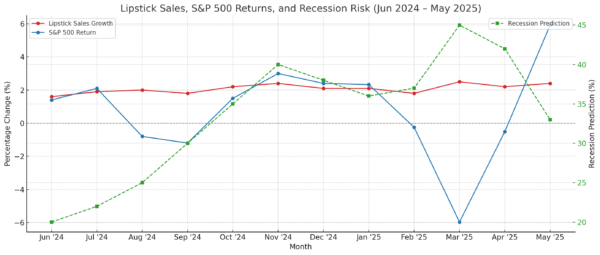ESG Investment Strategies: A Guide to Investing with Purpose—and Avoiding Pitfalls
Have you ever thought about how your investments could do more than just make money?
What if you could grow your wealth and help the planet, support fair treatment for workers, or promote ethical business practices?
That’s where ESG investment strategies come in. ESG stands for Environmental, Social, and Governance, and it’s a way to invest in companies that care about the same things you do.
But while ESG investing offers a way to align your money with your values, it’s not without its challenges. Some companies that claim to follow ESG principles have faced scandals, proving that not all that glitters is green. In this article, we’ll explore what ESG investing is, why it matters, how to get started, and how to avoid common pitfalls like greenwashing and ESG failures.
What Are ESG Investment Strategies?
ESG investment strategies focus on three key areas:
- Environmental: How a company treats the planet. Do they reduce pollution, use clean energy, or protect natural resources?
- Social: How a company treats people. Do they support diversity, fair wages, and safe working conditions?
- Governance: How a company is run. Do they have honest leadership, treat shareholders fairly, and avoid corruption?
When you use ESG strategies, you’re choosing to invest in companies that score well in these areas. It’s like voting with your money to support businesses that are doing good in the world.
Why ESG Investing Is Growing
ESG investing isn’t just a trend—it’s becoming a major force in the financial world. Here’s why:
- People Care More: Investors, especially younger ones, want their money to align with their values. They care about climate change, social justice, and ethical business practices.
- Better Performance: Studies show that companies with strong ESG practices often perform better in the long run. Why? Because they’re less likely to face lawsuits, fines, or bad press.
- Government Support: Many countries are passing laws to encourage sustainable business practices, which makes ESG-focused companies more competitive.
How to Start with ESG Investing
Ready to give ESG investing a try? Here’s how to get started:
1. Understand Your Goals
Ask yourself: What matters most to you? Is it fighting climate change, supporting social equality, or ensuring companies are run ethically? Your answers will help you choose the right ESG investments.
2. Research ESG Funds
Many investment funds focus on ESG strategies. Look for mutual funds or ETFs (Exchange-Traded Funds) that include companies with high ESG scores. Examples include the iShares ESG Aware MSCI USA ETF or the Vanguard ESG US Stock ETF.
3. Check ESG Ratings
Companies are often rated on their ESG performance by organizations like MSCI, Sustainalytics, or Morningstar. Look for companies with high ratings to ensure they’re truly committed to ESG principles.
4. Start Small
You don’t need a lot of money to start ESG investing. Many online brokers, like Robinhood or Betterment, let you buy ESG funds with just a few dollars.
5. Monitor Your Investments
Like any investment, it’s important to keep an eye on how your ESG portfolio is performing. Make sure the companies you’ve invested in continue to meet your standards.
Benefits of ESG Investment Strategies
- Do Good While Earning Money: You can feel good knowing your investments are supporting positive change.
- Lower Risk: Companies with strong ESG practices are often better managed and less likely to face scandals.
- Future-Proof: As the world focuses more on sustainability, ESG-focused companies are likely to thrive.
Challenges and Real-World ESG Failures
While ESG investing has many benefits, it’s not without risks. Some companies that claim to follow ESG principles have faced scandals, proving that not all ESG claims are genuine. Here are some real-world examples of ESG failures:
1. Volkswagen (Environmental Failure)
In 2015, Volkswagen was caught in the “Dieselgate” scandal, where it installed software in its diesel cars to cheat emissions tests. This contradicted its claims of being environmentally responsible and led to billions in fines and a damaged reputation.
2. Boeing (Governance Failure)
Boeing faced a governance crisis after the crashes of its 737 Max aircraft, which were linked to rushed development and ignored safety concerns. The scandal highlighted the dangers of prioritizing profits over people.
3. Wells Fargo (Social and Governance Failure)
Wells Fargo employees created millions of fake accounts without customers’ consent to meet sales targets. This betrayal of customer trust revealed serious governance and social responsibility issues.
4. BP (Environmental Failure)
The 2010 Deepwater Horizon oil spill was one of the worst environmental disasters in history. BP’s failure to prioritize safety and environmental protection cost the company billions and caused long-term ecological damage.
5. Fast Fashion Brands (Social and Environmental Failures)
Companies like H&M and Zara have been criticized for poor labor practices and contributing to environmental waste, despite claims of sustainability.
6. Facebook (Meta) – Social and Governance Failures
Facebook has faced numerous controversies, including the Cambridge Analytica scandal, where user data was harvested without consent. These issues raised questions about the company’s commitment to social responsibility and ethical governance.
Key Takeaways for Responsible ESG Investing
These examples highlight the importance of due diligence when investing in ESG-focused companies. Here’s how to avoid common pitfalls:
- Look Beyond the Surface: Research a company’s actual practices, not just its marketing claims.
- Check Third-Party Ratings: Use ESG ratings from organizations like MSCI, Sustainalytics, or CDP to assess a company’s performance.
- Monitor for Red Flags: Be wary of companies with a history of scandals or poor governance.
- Diversify Your Portfolio: Don’t put all your money into one company or sector, even if it claims to be ESG-friendly.
Conclusion
ESG investment strategies offer a powerful way to grow your money while making a positive impact on the world. By investing in companies that care about the environment, social issues, and good governance, you can help create a better future while building your wealth. However, it’s important to stay informed and do your research to avoid falling victim to greenwashing or unethical practices.
Whether you’re a beginner or an experienced investor, ESG strategies provide a meaningful way to align your money with your values—just make sure to invest wisely.
About Russ Amy
Hey there! I’m Russ Amy, here at IU I dive into all things money, tech, and occasionally, music, or other interests and how they relate to investments. Way back in 2008, I started exploring the world of investing when the financial scene was pretty rocky. It was a tough time to start, but it taught me loads about how to be smart with money and investments.
I’m into stocks, options, and the exciting world of cryptocurrencies. Plus, I can’t get enough of the latest tech gadgets and trends. I believe that staying updated with technology is key for anyone interested in making wise investment choices today.
Technology is changing our world by the minute, from blockchain revolutionizing how money moves around to artificial intelligence reshaping jobs. I think it’s crucial to keep up with these changes, or risk being left behind.
some even call me the Finpub God?





